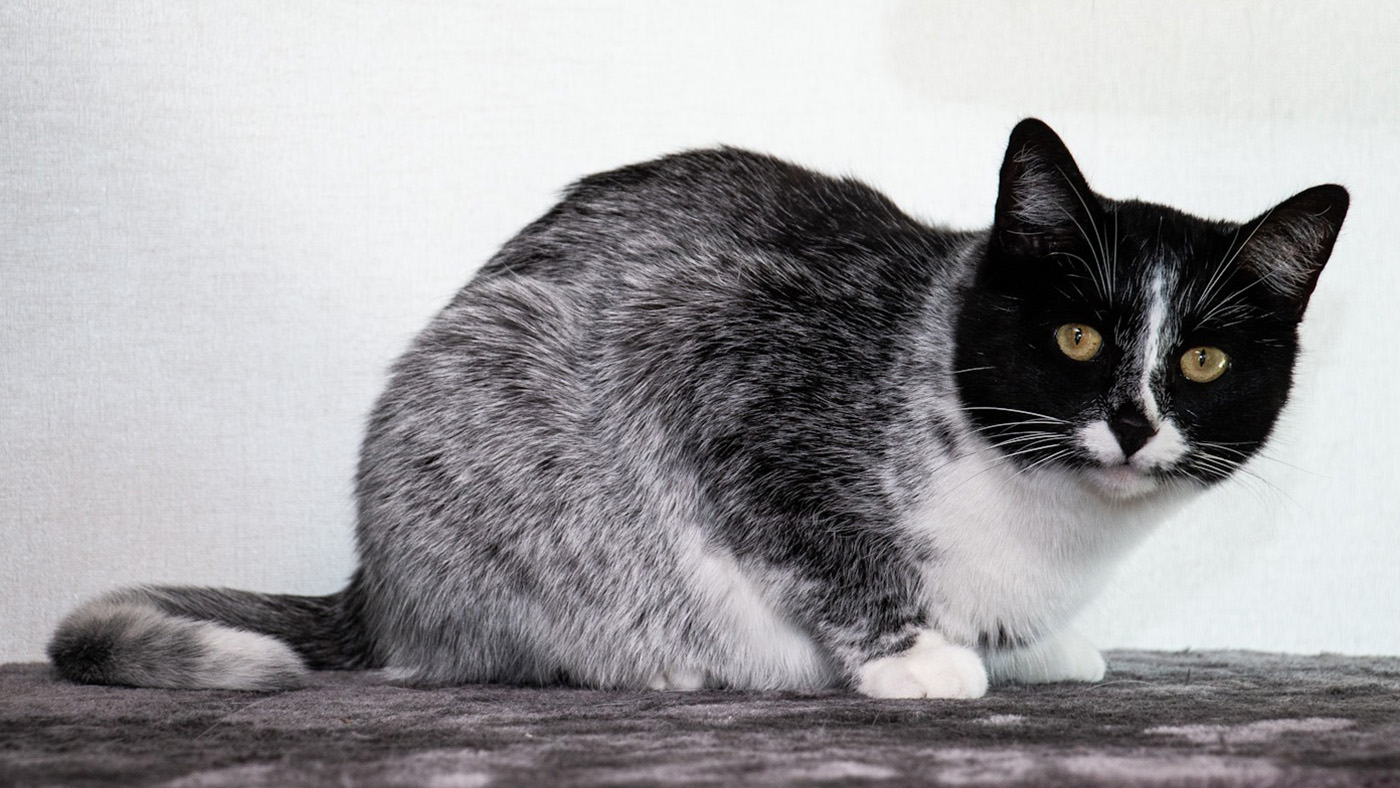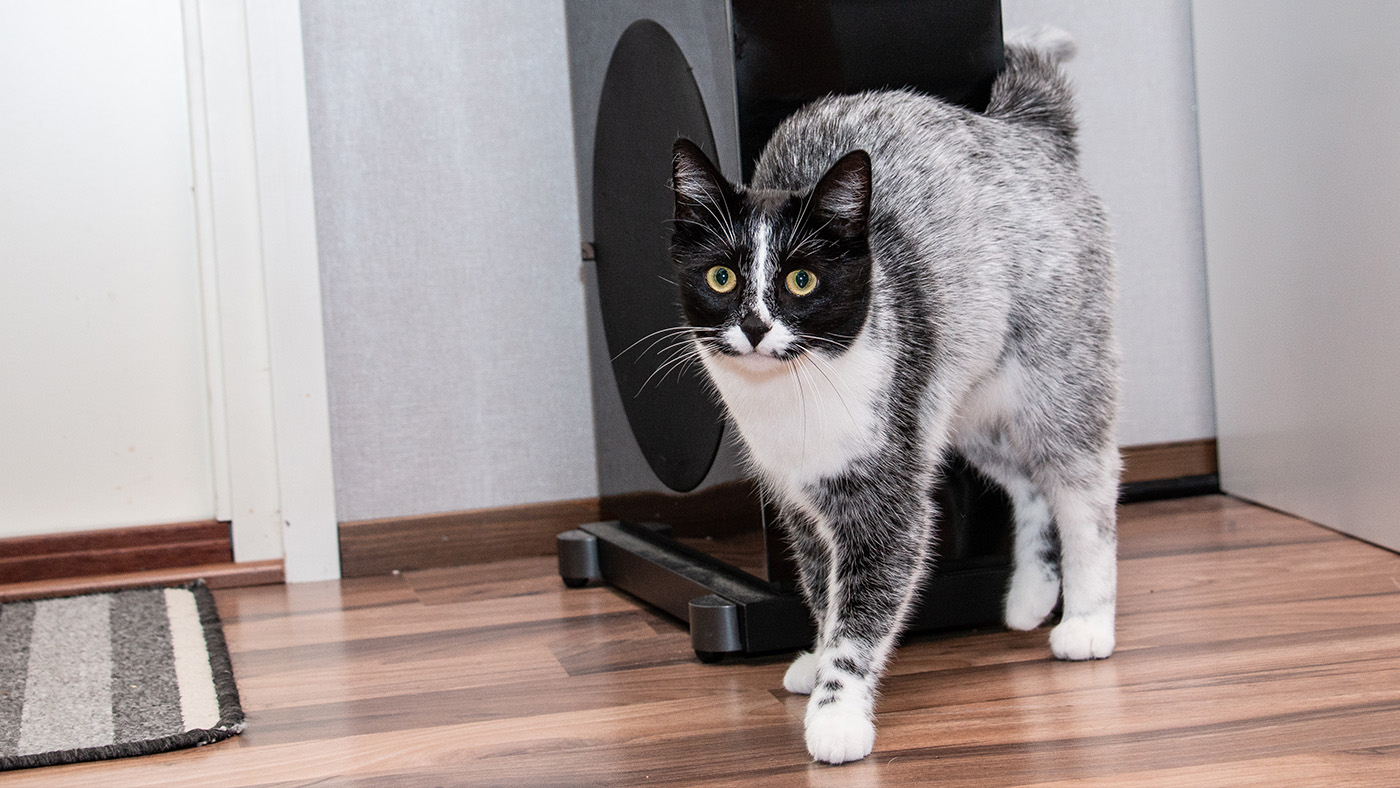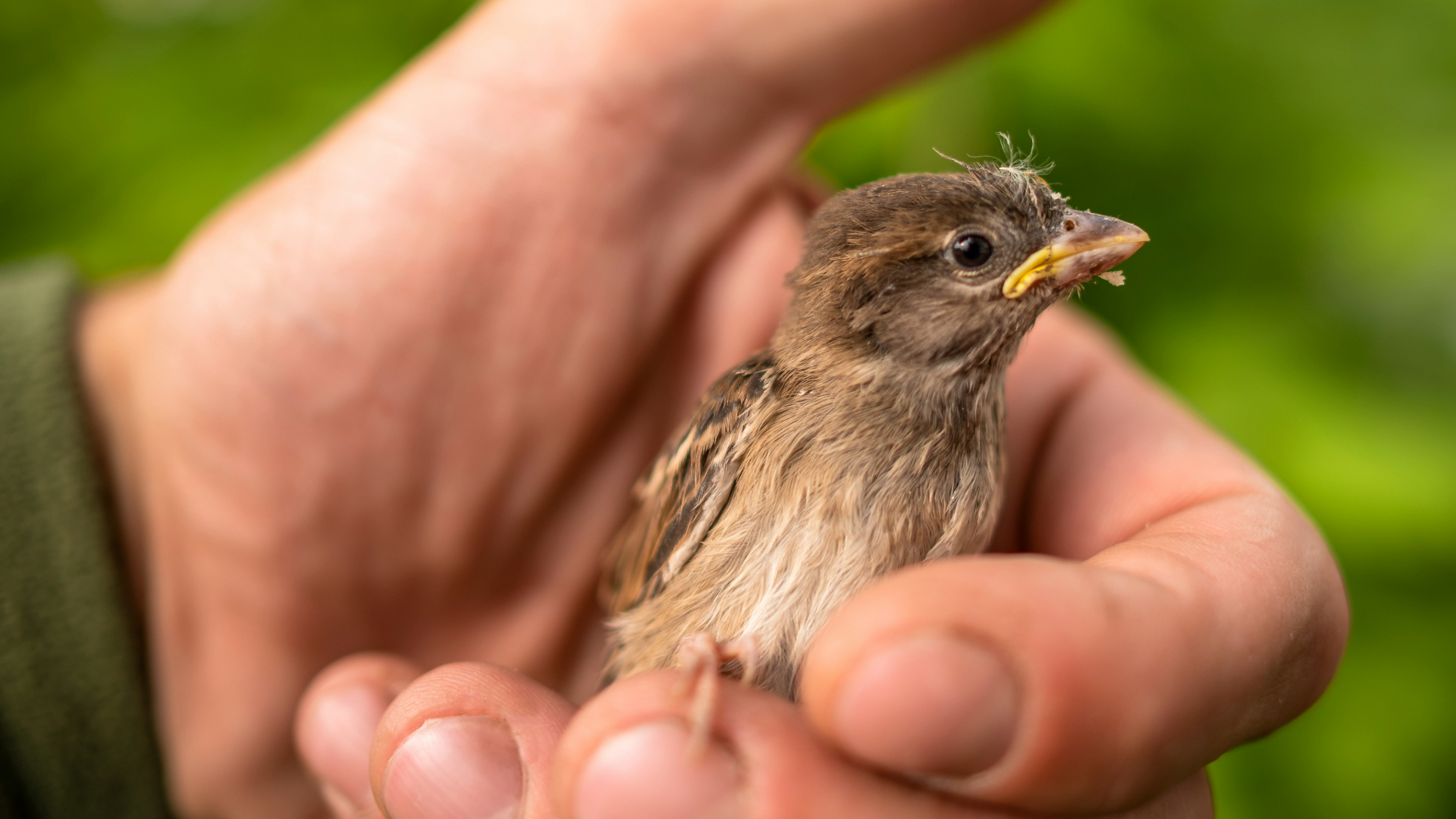Do you know what a salmiak cat is? Scientists officially discover this new cat coat color
These felines are named after a salty licorice snack from northern Europe

What color are your cats’ coats? From black to ginger to tortoiseshell, cats come in all sorts of different colors, but they’re all the same kitties we know and love.
Now, however, a new cat coat color has officially been discovered. It’s called salmiak, named for a salty licorice snack (salmiakki) popular in Finland – though we wouldn’t see it among the best cat treats – a country that boasts quite a few cats with this color.
The coloring is black, white, and gray, with fur that starts off black near the root but grows whiter and whiter as it comes out toward the tip. It was first seen in 2007, and a group of cat experts led by feline geneticist Heidi Anderson have been working to find out more about the shade since 2019. The team published a paper on the discovery in the journal Animal Genetics last year.

The experts started by thinking the new color was down to the ‘dilution’ gene that cats have. Cats only come in two colors, black and orange, with any other color being either a combination of the two, a diluted version of one of them, or a combination of both. So, they thought it was the dilution gene at work.
However, once they looked through all known genetic variations of the dilution gene, they couldn’t find an explanation. So, they sequenced the genome of two salmiak cats and analyzed the genetic data to find their answer.

“There was a huge chunk of sequence missing downstream from the KIT gene,” Anderson told New Scientist, discussing a gene that can affect white patterns in coats. The team went on to test 181 cats in total to make sure that this missing sequence was responsible for the color, with Anderson adding, “These coats have aroused a lot of admiration for years. It’s really exciting that we now have some genetic explanation for it.”
The mutation is recessive, so a cat will only be have the salmiak color if they inherit it from both parents, which explains why it’s still pretty uncommon. However, the official discovery of the shade both contributes to our understanding of cat coat color genetics and potentially helps us in breeding and preserving the color in future feline friends.
PetsRadar Newsletter
Get the best advice, tips and top tech for your beloved Pets
Read next: What colors can cats see?

Adam is a freelance journalist specialising in pets, music and culture, and mental health and wellbeing. He investigates and writes the large majority of news on PetsRadar, and collaborates with veterinary experts to produce informative pet care content.
Adam has a journalism degree from Southampton Solent University and a masters degree in Magazine Journalism from Cardiff University. He was previously senior editor at dog advice website DogTime.com, and has also written for The Independent, GoodToKnow and Healthline.
He owns two rescue cats, Bunny and Dougie, and has also previously had a rabbit, fish and Roborovski dwarf hamsters.
